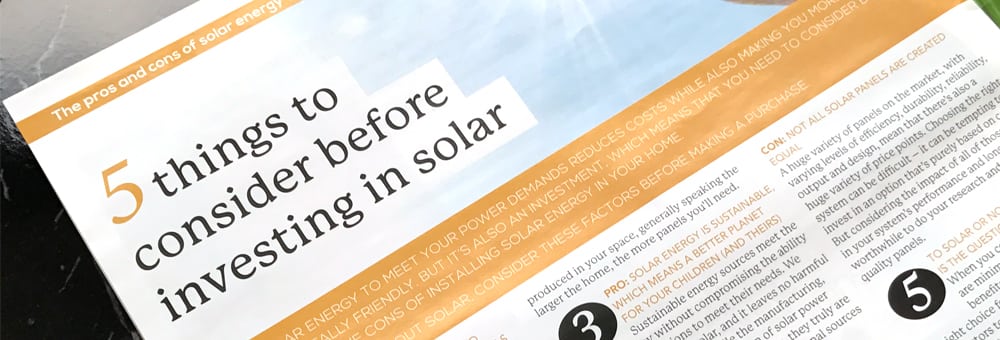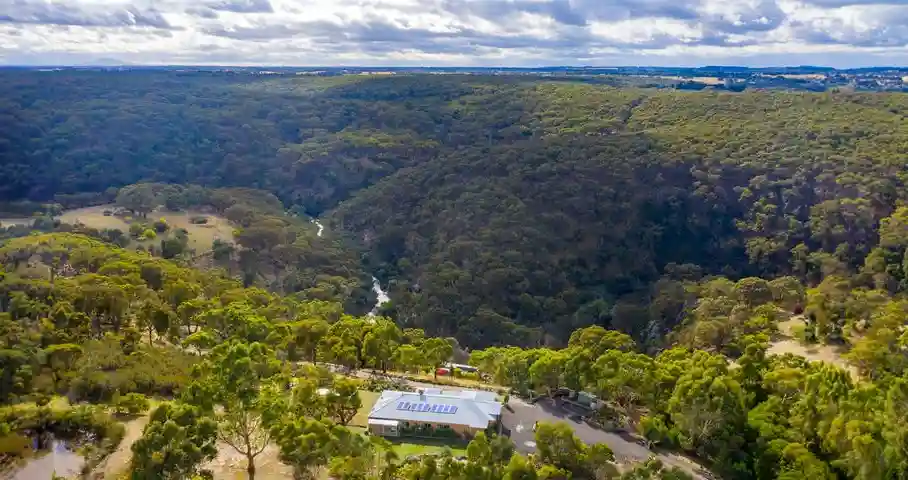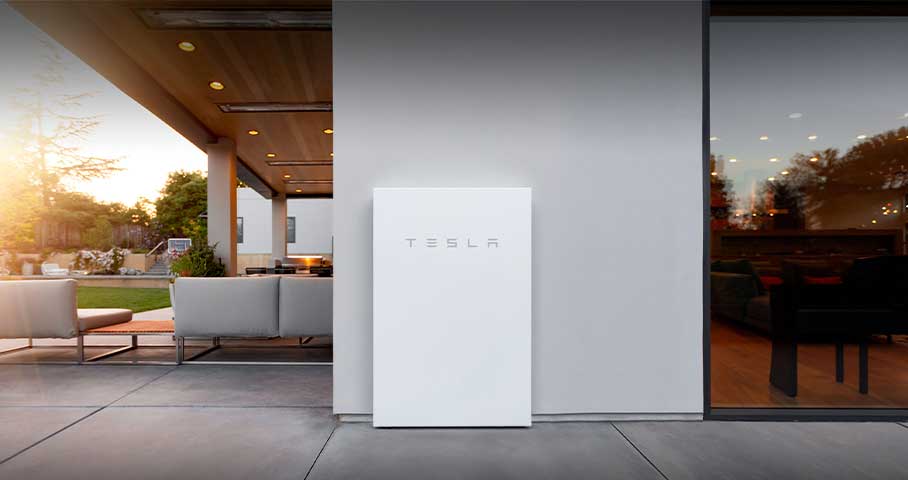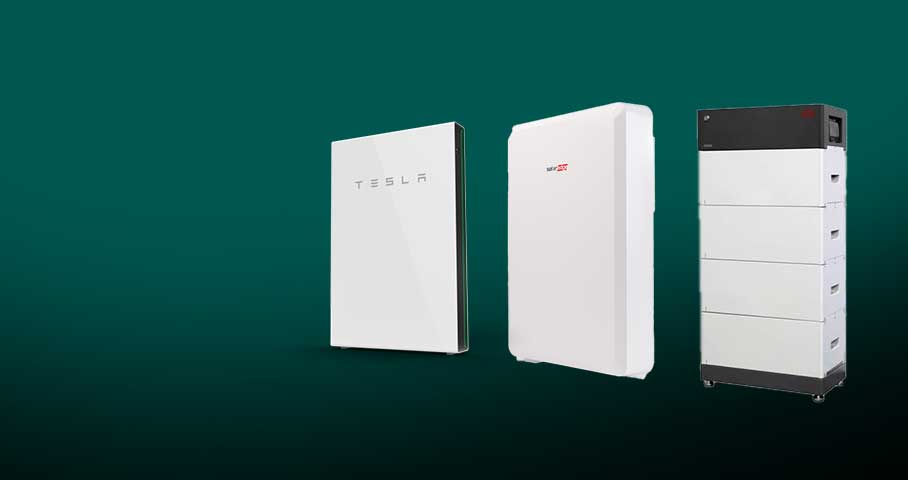Five things to consider before investing in solar
Using solar energy to meet your power demands reduces costs while also making you more environmentally friendly. But it’s also an investment, which means that you need to consider both the pros and the cons of installing solar energy in your home.
If you’re thinking about solar, consider these factors before making a purchase.
Pro: Less reliance on grid electricity reduces your bills
Cost savings are often the most significant factor for a lot of clients. When you use your solar energy, you’re relying less on your electricity company. This means that your monthly bills go down.
And a battery system will take your savings even further. You can store and sell excess energy back to the electricity company. You can even store your electricity company’s electricity during off-peak times, when prices are lowest, and then use that energy during peak periods. Lots of options!
Con: There is an upfront cost before the savings kick in
Yes, solar definitely saves you money, particularly over the long term. But the cost of manufacturing and installing solar panels is still high. The bigger your energy needs, the larger your investment. Nevertheless, it is an investment, and some companies even offer payment plans that make it incredibly accessible.
Pro: Solar energy is a renewable energy source
Solar energy is a renewable energy source. This is unlike other forms of energy that have a limited lifespan, such as coal and fossil fuels. As long as the sun remains alive (and that’s going to be a while – about 6.5 billion years, in fact!), we can’t run out of solar energy.
It’s also abundant – we could power all of earth with solar energy and still have solar radiation left to spare!
Con: It requires space
This one isn’t really a con because, let’s face it – what else are we going to do with the real estate on our roof? But the more energy you require to power your home, the more panels you need. And while we work out your specific energy needs before calculating how much power can be produced in your space, generally speaking the larger the home, the more panels you’ll need.
Pro: Solar energy is sustainable, which means a better planet for your children (and theirs)
Sustainable energy sources meet the needs of today without compromising the ability of future generations to meet their needs. We can’t over-consume solar, and it leaves no harmful side effects. And yes, while the manufacturing, transportation and installation of solar power systems do cause some emissions, they truly are minimal compared to most conventional sources of energy.
Con: Without a battery, solar power is intermittent
As our access to sunlight is limited to daytime (not to mention good weather!), solar energy is an intermittent energy source. This is somewhat resolved with the decreasing costs of battery systems, making them far more accessible to the average homeowner. But without one, your solar system won’t meet 100% of your energy demands.
Pro: They’re ultra-quiet and require little maintenance
Many alternative energy sources are limited to remote areas because of the noise they make (wind turbines are a prime example). But residential solar panels have no moving parts, so they weave their magic in glorious silence.
In terms of maintenance, they only need cleaning twice a year, purely so dirt and bird droppings don’t reduce their efficiency. And with no moving parts, they also last for decades.
From a technical maintenance perspective, there are products that alert us to issues and let us update your firmware remotely – you don’t even have to pick up the phone if you suspect there’s an issue!
Con: Not all solar panels are created equal
A huge variety of panels on the market, with varying levels of efficiency, durability, reliability, output and design, mean that there’s also a huge variety of price points. Choosing the right system can be difficult – it can be tempting to invest in an option that’s purely based on cost. But considering the impact of all of those factors in your system’s performance and longevity, it’s worthwhile to do your research and invest in quality panels.
To solar or not to solar… that is the question
When you consider it, the negatives are minimal in comparison to the benefits. But solar isn’t going to be the right choice for everyone. There are a whole lot of factors to take in, from environmental and economical through to grid independence, your location, and even advancing technology. But the bottom line is this: in the energy world, solar power compares incredibly well against other technologies for all of these factors.









